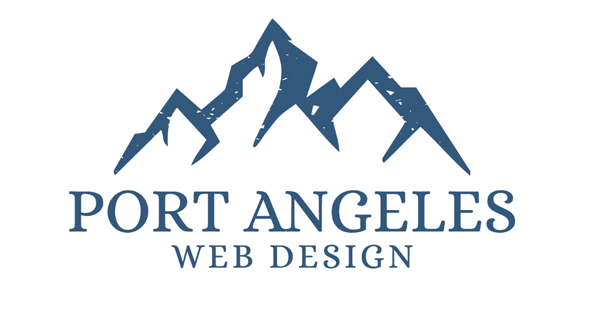Increase Engagement on your Facebook Page with these post ideas
Richard Fagan • February 19, 2024

If you're wondering what to share on your business Facebook Page to connect with your audience, we've curated a list of 6 diverse post ideas that will surely boost engagement.
- Ask Questions
A fantastic way to initiate dialogue with your audience is by posing questions. Though it may seem elementary, this strategy, when used judiciously and not excessively, can be remarkably effective. Delve into creative thinking to come up with a variety of thought-provoking questions. By doing so, you can solicit authentic feedback from your audience and customers, potentially influencing business decisions. Alternatively, posing industry-relevant and intriguing questions can boost engagement with your posts.
- Show your Personality
Your company's Facebook Page doesn't need to be strictly professional at all times. It's actually a fantastic notion to infuse some brand personality into your posts and captions. Inject some playful humor or share inspirational quotes that align with your industry.
- Trending Topics
A great way to broaden your audience reach and enhance interaction is by sharing content about popular topics that are currently piquing people's interest. This approach not only boosts the chances of your content showing up in users' feeds but also fosters more comments and shares on your posts.
- Blog Posts
An enduring Facebook post idea that stands the test of time: showcasing your company's blog posts. Why? For starters, content marketing holds equal weight to social media marketing, implying you're likely producing both forms of content already. Moreover, this equates to a treasure trove of free content to disseminate on social media, potentially driving more traffic to your content.
- Industry Tips
Providing insights and expertise is a powerful strategy to boost engagement and expand your audience reach. Your followers are hungry for knowledge, so the more valuable information you offer, the stronger the connection you'll build.
- Behind the Scenes
A fantastic Facebook content suggestion is to post behind-the-scenes (BTS) images of your business. There are numerous ways to go about this. Demonstrate the production process of your products, introduce your team members, or share bloopers from other videos or campaigns.
Keep in mind to consistently post at different times. Regularly check your Facebook Page Insights. This will offer valuable insights into the performance of your individual posts and assist you in determining the most effective strategies for engaging your audience.

Search engines are constantly evolving, and one of the most debated topics in SEO is the influence of social media on search rankings. While Google has stated that social media metrics like likes and shares are not direct ranking factors, there’s no denying that social media activity can have a significant indirect impact on SEO. The question is: Are some social media connections more valuable to SEO than others? The short answer is yes. Not all social media platforms contribute to SEO in the same way. Some platforms are more authoritative, indexed more frequently, and capable of driving high-quality referral traffic. In this article, we’ll explore which social media connections offer the most value for SEO and how to leverage them for better search rankings. YouTube: A Powerhouse for Video SEO YouTube is owned by Google, making it one of the most influential platforms for SEO. Well-optimized videos can appear in both Google’s video search results and regular search listings. By incorporating keyword-rich titles, descriptions, and captions, you can enhance your website’s visibility. SEO Benefits: - YouTube videos rank in Google’s search results, providing an additional avenue for visibility. - Embedded YouTube videos can increase dwell time on your website, a positive user engagement signal. - Video content encourages backlinks and social shares, indirectly boosting domain authority. Twitter/X: Fast Indexing & Brand Mentions Twitter is one of the few social media platforms that Google indexes frequently. Tweets from authoritative accounts often appear in Google search results, making Twitter an effective tool for amplifying content reach. SEO Benefits: - Tweets appear in search engine results, increasing visibility for trending topics and branded searches. - Twitter encourages brand mentions, which can lead to natural backlinks from other sources. - Sharing high-quality content can drive referral traffic and encourage organic link-building. 3. Pinterest: Image SEO & Long-Term Traffic Pinterest is often overlooked in SEO discussions, but it is a powerhouse for driving organic traffic, especially in visual niches like fashion, food, travel, and home decor. Pins can rank in Google image searches and continue driving traffic for months or even years after they are posted. SEO Benefits: - Pins and boards get indexed by Google, providing additional opportunities for search visibility. - Keyword-rich descriptions help improve rankings in both Pinterest and Google searches. - High engagement on Pinterest can lead to more inbound links from blogs and websites. 4. Reddit & Quora: Niche Authority & Referral Traffic Both Reddit and Quora offer opportunities to position yourself as an industry expert while driving targeted traffic to your website. While links from these platforms are typically nofollow, their impact on SEO goes beyond link value. SEO Benefits: - Well-received answers and discussions can appear in Google search results, increasing your content’s reach. - A strong presence on these platforms can build brand authority and encourage organic backlinks from other sources. - Referral traffic from niche communities tends to be highly engaged, reducing bounce rates and improving on-site metrics. 5. Facebook & Instagram: Brand Awareness & Engagement While Facebook and Instagram are less directly tied to SEO, they still play a role in overall digital marketing success. Posts on these platforms aren’t typically indexed by Google, but they help with brand discovery, social sharing, and audience engagement. SEO Benefits: - Strong social engagement can lead to more website visits and increased branded search queries. - Viral content can attract media attention and backlinks from other websites. - Social proof and user engagement contribute to trust and authority, indirectly boosting SEO. Maximizing Social Media for SEO Success To make the most of your social media connections for SEO, follow these best practices: - Share high-quality content** that is valuable, shareable, and engaging. - Optimize your social media profiles** with relevant keywords, descriptions, and links to your website. - Encourage social sharing** to increase content reach and the likelihood of earning backlinks. - Use social media to amplify new content**, driving initial traffic and engagement that can lead to organic ranking improvements. - Engage with industry influencers and communities** to increase visibility and credibility. Not all social media connections are created equal when it comes to SEO. **YouTube, Twitter, Pinterest, and Reddit** offer the strongest indirect SEO benefits by driving traffic, encouraging backlinks, and increasing content visibility in search results. However, a well-rounded social media strategy that includes brand-building on platforms like Facebook and Instagram can still contribute to overall online authority. By leveraging the right social media channels strategically, you can enhance your SEO efforts, drive more organic traffic, and establish your brand as an industry leader. Social media and SEO go hand in hand—so make sure you're using both to their full potential!

The Google Index process refers to how Google collects, organizes, and stores information from web pages to make it accessible through search results. The purpose of this process is to enable Google Search to quickly retrieve relevant information in response to user queries. The process involves several key steps: 1. Crawling Definition: Google uses automated bots called "Googlebots" to discover new or updated web pages by following links on the web. Purpose: To find as much content as possible, ensuring the search index remains comprehensive and up-to-date. How it works: Googlebot begins with a list of known URLs (from previous crawls or sitemaps) and discovers new pages by following links from these. 2. Rendering Definition: After crawling, Google processes the HTML, JavaScript, CSS, and other elements to see how the page would appear to a typical user. Purpose: To understand the layout, design, and content as users would experience it. How it works: Google uses headless browsers (like Chrome) to simulate how the page renders, ensuring it can read dynamic or JavaScript-generated content. 3. Indexing Definition: Google analyzes the content and structure of crawled pages and organizes the data for storage in its massive index. Purpose: To make content searchable by categorizing it based on topics, keywords, and other signals. What Google stores: Text content Meta tags (e.g., titles, descriptions) Structured data (e.g., schema markup) Images and videos (if applicable) 4. Ranking Definition: When a user searches, Google retrieves information from its index and ranks results based on relevance and quality. Purpose: To deliver the most accurate and helpful answers to users. Factors considered: Keywords in the content Page quality and authority User experience metrics (e.g., page speed, mobile-friendliness) Backlinks and site reputation Purpose of the Google Index Efficiency: By pre-organizing data, Google can retrieve results almost instantly when a query is made. Relevance: The index helps ensure that users get the most pertinent results based on their search intent. Scalability: The index allows Google to handle billions of searches daily across an enormous volume of web content. The Google Index process is essential for organizing the internet’s vast amount of information, making it searchable, and ensuring users find relevant, high-quality results efficiently.

